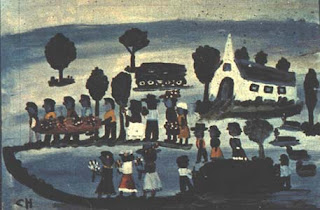 Seneca
Presbyterian Church is doing something new and very meaningful this weekend. We
are honoring Veterans. Not just by saying a quick thank you and moving on with
the business of the day. Our Outreach
Committee has planned a program and reception. It will take place in our
Pastors’ Hall on Sunday afternoon (November 10) at 3:00 p.m. Charlie – a member
of our congregation who is president of Patriot’s Hall, a war museum dedicated to
veterans of Oconee County – will be our speaker.
Seneca
Presbyterian Church is doing something new and very meaningful this weekend. We
are honoring Veterans. Not just by saying a quick thank you and moving on with
the business of the day. Our Outreach
Committee has planned a program and reception. It will take place in our
Pastors’ Hall on Sunday afternoon (November 10) at 3:00 p.m. Charlie – a member
of our congregation who is president of Patriot’s Hall, a war museum dedicated to
veterans of Oconee County – will be our speaker.
It’s natural that a congregation of
primarily retirees would take time to recognize this day and say thank you. But
I also find it surprising. You see, in over thirty years of ministry, this reception
marks the first time a church I was currently serving marked the day. It is
long overdue.
I invited Charlie to join our
Wednesday evening Bible study group. That’s the group that helps me live into
the text and sermon for the following Sunday. Charlie brought Del with him – another
member of Seneca Presbyterian and Marine Corps vet with 20 years of service. I
felt honored to be in their presence and to listen to stories of their active
duty service along with their ongoing service to veterans in our area.
I needed their help this week. I had
discovered a fascinating and also disturbing topic: moral injury. It is defined
as “perpetrating, failing to prevent, or being
witness to acts that transgress deeply held moral beliefs and expectations.”
(See “Soul Repair” in Presbyterians Today,
Vol. 103, No. 8, September 2013) I needed to hear from Charlie – and thanks to
Charlie, also Del – that the topic was real and open for discussion.
Moral
injury happens when we find ourselves caught up in a situation where we are
forced to act in ways contrary to our moral code of conduct. We may do the
right thing in the right moment – like killing the enemy in the moment of combat.
But when we no longer live and function in that moment; when other moral codes take
over; when a soldier comes home from war, the memory of those actions can
create a living hell - even when the action was entirely justified and even
when it was the “right thing to do.”
It
seems, some would say, that human beings have an instinct against killing. That’s
hard to believe, isn’t it? When we think of Columbine and Virginia Tech and
Newtown, we wonder if the opposite comes closer to the truth. Yet it has been
said that we have to be taught to hate. What if we have to be taught to kill? And
when we must kill, it leaves a giant moral injury in the human soul. Perhaps
that is something of why our grandfathers and fathers and brothers and sisters
don’t talk about war.
But
we cannot heal the deep wounds of the soul without talking about them. The Church
can offer a unique and powerful place for that talking. For in the Church we
also talk about forgiveness and about a God who loved us so much that He took on
the sin of the world in order to redeem it.
We’ll
talk about that this Sunday at Seneca Presbyterian Church. Join us if you can.

















